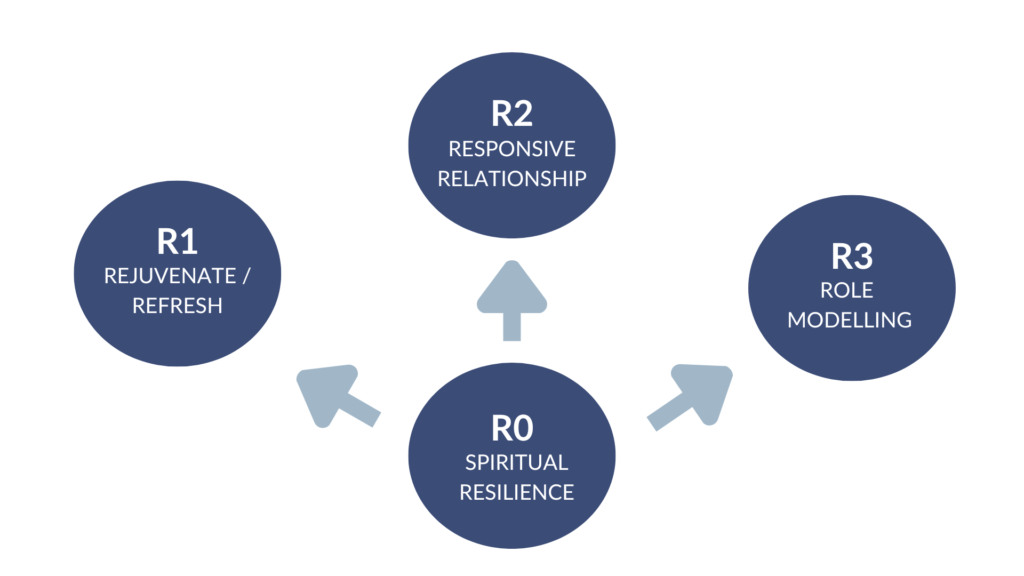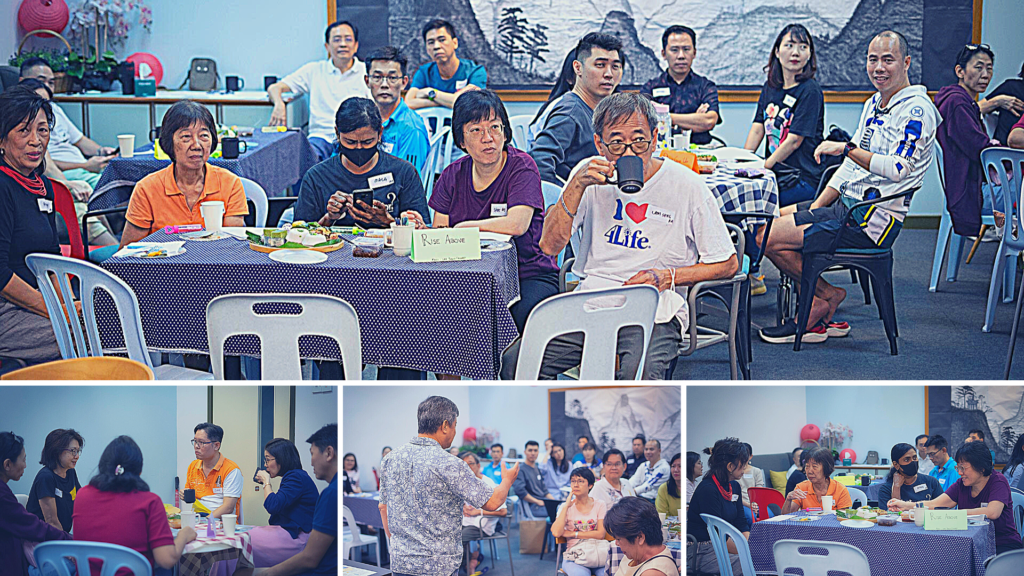HOW TO RAISE RESILIENT CHILDREN
Testimony 1
By Loh Lee Soon, Facilitator
Resilience can be defined as the ability to withstand, recover and grow in the face of stressors and changing demands, and to recover quickly from difficulty.
At a recent workshop, Dr Susan Tan, a child and adolescent psychiatrist, helped us understand the scientific basis to building “resilience”. When parents introduce positive experiences such as supportive relationships, safety, good health and financial security, the scale can be tipped towards more positive outcomes, thereby building self-confidence and self-esteem.
Dr Susan offered this simple formula: Resilience = R0 + R1+ R2 + R3.

It starts with the parents, what she called R1 – Rejuvenate and Refresh yourself (the parents) first, citing the example of an aeroplane emergency where you put on the oxygen mask for yourself first before attending to your child. R1 includes learning how to stay calm and manage your stress and your emotions, thereby improving your communication with the kids.
R2 is building Relationships with your kids which are Responsive, and attachments with your child through quality time and helping them learn to ‘repair’ after ‘rupture’, how to self-soothe, and learn empathy. It is important to understand that your parenting style needs to change as your child grows and becomes more capable and independent.
R3 is Role-modelling – your child is watching your every action and reaction and will copy and mimic your words, your actions and your behaviour.
Finally, the foundational element of resilience is R0 – Spiritual resilience. The Bible is filled with stories of resilience in the face of suffering and God provides comforting and encouraging words that help us to see God as a refuge and comfort, and to build an “eternal hope”. Developing strong spiritual habits in our children from an early age will help them stay faithful and resilient as they “fly the nest” in later years.
Testimony 2
By Ana Cing Yee, Participant
I arrived at the workshop and was immediately attracted to the colourful nyonya kuih and a white piece of paper listing out the various helpful and unhelpful communication styles.
Unhelpful vs Helpful Communication Styles
| UNHELPFUL | HELPFUL |
| Interrupting | Listening quietly |
| Lecturing, preaching, moralizing | Identifying the problem, being brief |
| Criticizing | Identifying the positive; collaborating on solutions |
| Mind reading (telling others what you assume they think and feel) | Asking people to say what they think and feel |
| Getting off-topic | Catching oneself and returning to the problem |
| Dwelling on the past | Sticking to the present and future (suggesting change to correct past problems) |
| Monopolizing the conversation | Taking turns making brief statements |
| Threatening | Suggesting alternative solutions |
| Clamming up, not responding | Reflecting; validating; expressing both negative and positive feelings |
| Using the “silent treatment” | Negotiating a later time to talk when everyone has “cooled off” |
| Accusing, blaming | Starting how you felt, using “I” statements |
| Using sarcasm | Making communication direct, using a neutral voice |
| Put-downs, name-calling, shaming | Accepting responsibility, making “I” statements |
Checked checked checked… Okay, I’ve been displaying all the “unhelpful” communication styles for the past 10 years. Really?
I am forever grateful to Rev. Alexa for inviting me to join the workshop (and many other matters too). But I really needed the workshop. The speaker, Dr Susan Tan, a psychiatrist by profession, totally nailed it. She helped me diagnose my communication with my children. I learned too that self care is not selfish but being responsible. It is much needed for a lifelong marathon of raising resilient kids to go through tough times.
As a parent, I must learn to let go and empower my children. Together, we can brace challenges and failures, yet not neglect their need for space to face, understand and manage the circumstances by themselves.
Bearing in mind that monkeys see, monkeys do, if I advise my children to deal with their emotions without meltdown, for instance, I too must be calm and prayerful when my world turns upside down.
2 Corinthians 4:16-18
4:16 Therefore we do not lose heart. Though outwardly we are wasting away, yet inwardly we are being renewed day by day.
4:17 For our light and momentary troubles are achieving for us an eternal glory that far outweighs them all.
4:18 So we fix our eyes not on what is seen, but on what is unseen. For what is seen is temporary, but what is unseen is eternal.
I am not alone. You are not alone. Our Almighty God is always standing by us. We get better as we practise while in His will, He perfects us.
Testimony 3
By John Lam & Zhe Yun, Participants
We were blessed with the opportunity to attend this workshop together (Zhe Yun had to forgo the “How you talk is how you rock” parenting workshop as our younger 3-year-old daughter was unwell then).
One of the key takeaways from this workshop is that scientifically, building a child’s resilience is akin to a fulcrum where both positive and negative events/environments are on opposite ends – these can influence the resilience of our children as they grow up.
As parenting is a lifelong journey, sometimes emotions can get the better of us, thus we need to own up to our mistakes and say sorry to our kids (we are all imperfect, needing God’s grace through the saving work of our Lord Jesus Christ).
Last but not least, R0 (Spiritual Resilience) is the anchor of it all. Both of us need to work on that to instil it in our kids. Being in PJEFC, belonging to a CG and having parenting workshops (with great facilitators – it was Suet this round!) help us to get the needed support and prayer to journey together to raise our kids the way that God wants us to (Deut. 11:18-20, Prov. 22:6)
May our Lord Jesus be glorified in this!
Get Involved
🙏 Pray for both parents and kids to develop spiritual resilience – tough times never last, but tough kids (and parents) do!
🗓️ Stay tuned for our upcoming Parenting Workshops.

